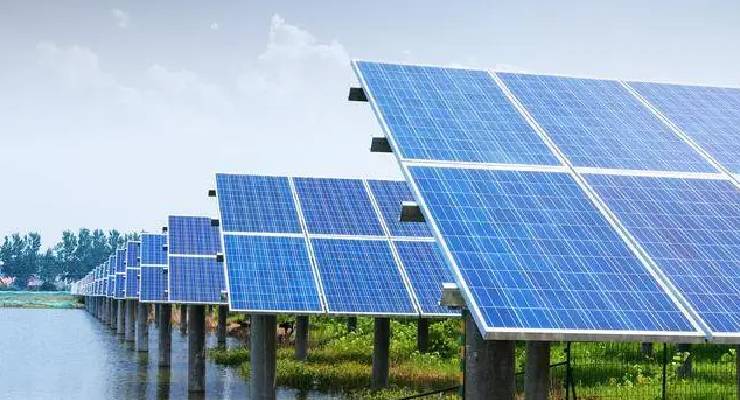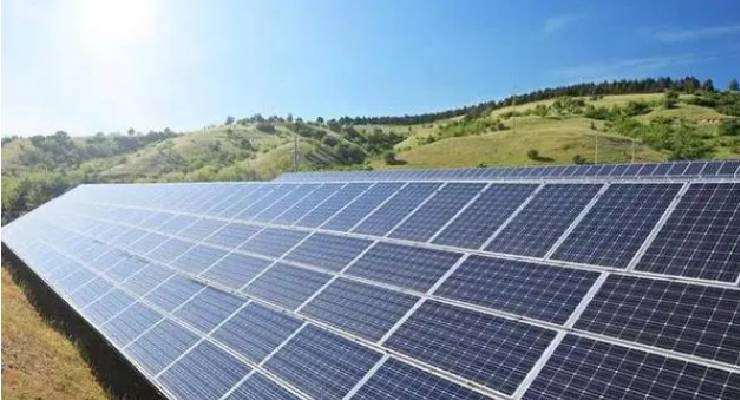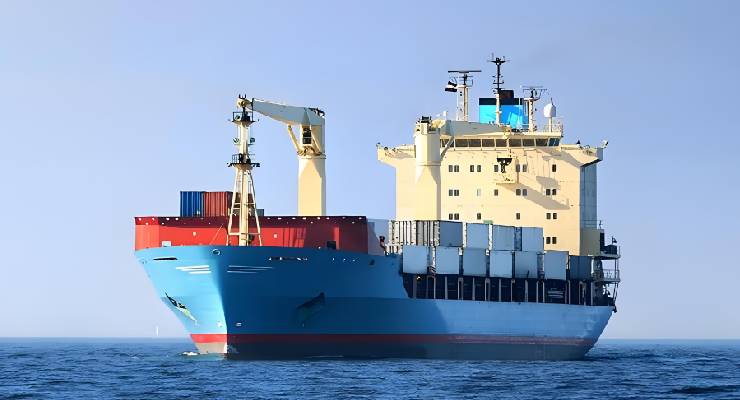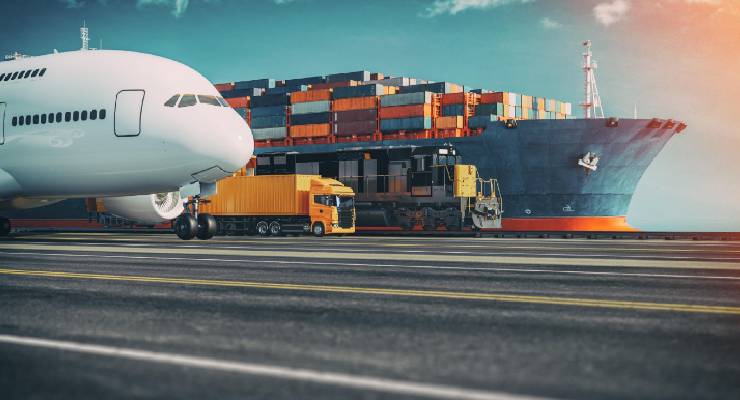
The world is embracing renewable energy more than ever, with solar leading the way for a sustainable future. Solar panels are becoming increasingly common in homes, businesses and industrial Settings. These panels are essential for harnessing solar energy and converting it into clean and renewable electricity. But have you ever wondered what kind of journey those solar panels have to make before they reach your roof or solar farm? In this blog post, we will delve into the importance of efficiently and sustainably transporting solar panels, recognizing their critical role in building a cleaner, greener world.
Ready to streamline your shipping process and improve the efficiency of your supply chain? Contact Winsailtoday for a seamless freight forwarding solution.
Understanding solar panels: A brief introduction to solar panels and their types and components
Before diving into the complex details of solar panel transportation, it is necessary to have a basic understanding of what solar panels are and how they work. Solar panels, also known as photovoltaic (PV) panels, are the core of the solar energy system and the main source of harnessing solar energy. In this section, we'll explore the basics of solar panels, their different types, and the components that make them work.
Solar panels: The basics
At the heart of a solar panel is a device that captures sunlight and converts it into electricity. This process, called photovoltaic conversion, relies on the photovoltaic effect, in which certain materials generate an electric current when exposed to sunlight. Solar panels are usually made of semiconductor materials, the most common being crystalline silicon.
Types of solar panels
There are two main types of widely used solar panels:
Single crystal solar panels: These panels are made of a single crystal structure, usually silicon. Single crystal panels are known for their high efficiency and smooth appearance. They are often preferred when space is limited, such as on a residential roof.
Polycrystalline solar panels: Polycrystalline solar panels are made of multiple silicon crystals. They are cheaper to produce, but slightly less efficient than single-crystal solar panels. They are a popular choice for large-scale solar installations such as commercial projects and solar farms.
Components of a solar panel
Solar panels are made up of several key components, each of which has a specific role in the energy conversion process:
Photovoltaic cells: These are the individual units within a solar panel responsible for converting sunlight into electricity. They contain semiconductor materials that generate an electric current when exposed to photonons.
Glass cover: The solar panel is covered with tempered glass as a protective layer. The glass withstands all weather conditions, including rain, snow and hail, while allowing light to pass through.
Packaging material: A layer of packaging material surrounds the photovoltaic cells, protecting them from moisture and physical damage. This material is usually made from ethylene-vinyl acetate (EVA).
Backplane: The backplane is a layer at the back of the panel. It insulates and protects against moisture and external factors.
Frames: Many solar panels have aluminum frames for added structural support and easy installation. The frame also helps dissipate heat, allowing the panels to operate efficiently.
Junction box: This junction box contains the electrical connection to the solar panel. It is used to collect the electrical output of the solar panel and transmit it to the lines that connect the solar panel to the inverter and the rest of the electrical system.
Understanding the different types and components of solar panels is crucial, as it affects what to consider and precautions to take when transporting these valuable components. In subsequent sections of this blog post, we'll explore the challenges and best practices when transporting solar panels to ensure they arrive at their destination in the best possible condition.
Why use solar panels?
Advantages of solar energy
Solar energy has many benefits, from reducing electricity bills to reducing carbon footprint. Solar panels are a cost-effective and environmentally friendly energy solution.
Environmental benefit
Solar panels generate clean energy and do not emit greenhouse gases, making them an environmentally friendly option. We will explore the ecological advantages of solar panels and their role in mitigating climate change.
Economic incentives for solar adoption
The economic incentives of using solar energy go beyond lower energy bills. Learn about the tax incentives, rebates, and savings that make solar a smart investment.

Challenges in Solar Panel Transportation: Explore the unique challenges and considerations when transporting solar panels
Transporting solar panels presents a unique set of challenges that require careful planning, expertise, and attention to detail. These challenges are influenced by the nature of solar panels, their fragility, value, and the global demand for clean energy solutions. In this section, we'll delve into the specific barriers and considerations associated with shipping solar panels and discuss how freight forwarders can address them.
Fragile and damage risk: Solar panels are fragile, and even a slight impact can cause the photovoltaic cell to crack or be damaged. This fragility requires careful handling, safe packaging and protective measures throughout transportation.
Weather and environmental factors: Solar panels often need to be transported long distances and can be exposed to a variety of weather conditions. Extreme temperatures, humidity and exposure to the elements can affect its performance and longevity. It is essential to ensure proper protection during transport.
Customs and Regulatory compliance: International shipments of solar panels involve compliance with various customs regulations, import and export restrictions, and quality standards. Compliance with these regulatory frameworks is essential to avoid delays and legal issues.
Logistics and timing: Timely delivery of solar panels is critical, especially for projects with tight construction timelines. Delays can lead to increased costs, missed deadlines and frustrated energy production.
Packaging and handling: Proper packaging and handling is essential to prevent breakage and maintain the efficiency of solar panels. Freight forwarders need to ensure that the packaging materials are suitable for specific types and sizes of solar panels.
Mode of transport: Choosing the right mode of transport (air, sea or land) is a key decision that affects the cost and safety of transporting solar panels. Each approach has its advantages and challenges.
Sustainability and carbon footprint: In an era of increasing environmental awareness, the carbon footprint of transport is a concern. Choosing environmentally friendly modes of transport and optimizing routes can minimize the environmental impact of shipping.
Cost Management: Managing transportation costs is a complex task as it involves balancing speed, safety, and expense. Freight forwarders must provide cost-effective solutions without compromising service quality.
Security and anti-theft: Solar panels are a valuable commodity, so they are easily stolen. Implementing security measures and tracking systems is essential to protect goods during transport.
Documentation and accuracy: Shipping solar panels requires accurate documentation, including bills of lading, certificates of origin, and import licenses. Clerical errors can result in customs delays and additional costs.
Insurance and risk mitigation: Solar panels are a significant investment, and the risk of loss or damage during transportation is a real concern. Freight forwarders must provide insurance options and risk mitigation strategies to protect their customers.
Environmental practices: With the increasing emphasis on sustainability, shippers are also increasingly looking to environmental practices in the logistics industry. Reducing emissions and adopting green transport solutions are key considerations.
Choosing the right freight forwarder:
How to choose a reliable freight forwarder that specializes in solar panel logistics
Choosing the right freight forwarding company is a key step in ensuring efficient and safe transportation of solar panels. Solar panel logistics requires expertise, experience and attention to detail, so choosing a freight forwarder with expertise in this area is crucial. In this section, we will discuss how to choose a reliable freight forwarding partner for your solar panel shipment.
1. Industry experience
The first step is to assess the experience of the freight forwarder in handling the shipment of solar panels. Look for companies with a proven track record in the solar industry, as they are more likely to understand the unique challenges and requirements associated with solar panels.
2. Reputation and recommendations
Research the company's reputation and ask for recommendations from their previous clients. Reading reviews and references can give you insight into their performance, reliability, and customer satisfaction.
3. Licensing and certification
Ensure that freight forwarders have the necessary licenses and certifications required for international transportation. Organizations such as the International Air Transport Association (IATA) and the International Federation of Freight Forwarders Associations (FIATA) provide certification for reputable freight forwarders.
4. Compliance and documentation
A reliable freight forwarder should have an in-depth knowledge of customs regulations, import and export documents, and quality standards for solar panels. They should be able to handle complex paperwork efficiently and accurately.
5. Network and global reach
Having an extensive network of partners and agents across all countries is essential for seamless international transport. Ensure that freight forwarders have a strong global presence and are able to deal with the complexities of cross-border logistics.
6. Packing and handling expertise
Given the fragile nature of solar panels, ask about the company's packaging and handling methods. They should have experience in using appropriate materials and methods to protect solar panels during transportation.
7. Mode of transportation
Evaluate the ability of a freight forwarder to provide a variety of modes of transportation, including air, sea and land, to meet your specific transportation needs. They should be able to recommend the most suitable mode of transportation for your solar panels.
8. Insurance options
Ask the freight forwarder about insurance options for your solar panel shipment. Adequate insurance coverage is essential to protect your investment in the event of loss or damage while in transit.
9. Environmental commitment
If sustainability is a top priority for your company, consider freight forwarders who are committed to environmentally friendly practices. They may offer green transport options or develop strategies to reduce their carbon footprint.
10. Cost transparency
A transparent and competitive pricing structure is essential. Ask for a detailed quote that includes all relevant fees and make sure there are no hidden fees.
11. Communication and customer service
Effective communication is the key to a successful transport partnership. Choose a freight forwarder who is responsive and attentive to your specific needs and concerns.
12. Record of timely delivery
Timely delivery is crucial for solar panel projects. Investigate freight forwarders' track record in on-time delivery and ask them about their strategies for optimizing routes and schedules.
Choosing the right freight forwarder who specializes in solar panel logistics is a key decision that can greatly affect the success of your solar project. By considering these factors and conducting thorough research, you can ensure that your solar panels are transported efficiently and safely to their destination, meeting the growing demand for clean energy solutions.

International shipping and regulations
Export and import of solar panels
Understanding the complexities of international shipping and related regulations is critical to the success of the solar panel business.
Tariffs and trade agreements
Learn about the world of tariffs and trade agreements, which can have a significant impact on the cost of solar panels.
Meet international standards
Explore international standards and certifications to ensure the quality and safety of solar panels during transportation.
Using solar panels in the UAE
The United Arab Emirates (UAE) is known for its abundant sunshine and is the best place to generate electricity with solar panels. The UAE's commitment to transition to renewable energy has driven significant growth in the solar industry. The following details solar panel usage in the UAE and how to import solar panels for a sustainable future.
Plenty of sunshine: The UAE has excellent solar energy resources, with plenty of sunshine throughout the year. This makes it an ideal location for developing solar energy. Using solar panels is not only environmentally friendly, but also economically beneficial.
Government initiatives: The UAE government has launched several initiatives to promote the spread of solar energy. These initiatives include feed-in tariffs, net metering and various incentives to encourage individuals and businesses to invest in solar panels.
Residential solar installations: Many households in the UAE have turned to solar energy as a means to reduce their electricity bills and promote sustainability. Rooftop solar installations are a popular option that enable homeowners to produce clean energy and even sell excess power back to the grid.
Large-scale solar projects: The UAE is also home to some of the most important solar projects in the world. Large-scale solar farms and concentrated solar power plants are key to the country's renewable energy goals.
How to import solar panels to UAE
Importing solar panels into the UAE will be a simple process if the following steps are followed:
Regulatory compliance: Ensure that the solar panels you intend to import meet UAE regulatory standards and specifications. Compliance with local regulations is essential to avoid any customs problems.
Choose a reputable supplier: Choose a reputable solar panel supplier or manufacturer. Working with a company that provides high-quality solar panels and can assist with customs clearance documents is crucial.
Customs documents: Prepare the necessary customs documents, usually including bills of lading, commercial invoices, certificates of origin, and other required permits or licenses. You may need to work with a customs broker to facilitate this process.
Customs and Tax Considerations: Understand the duties and taxes involved in importing solar panels into the UAE. Different types of goods may have different tax rates, and some solar panels may qualify for tax exemptions.
Logistics and transportation: Work with a reliable freight forwarder to arrange the shipping of your solar panels to the UAE. Freight forwarders like Winsail can help coordinate shipments, handle customs formalities and ensure your solar panels arrive safely.
Installation and certification: Once the solar panels arrive, you will need to arrange for a qualified technician to install them. In addition, certain solar panel installations may require certification to qualify for incentives and feed-in tariffs.
The UAE is committed to developing solar energy and its favorable environmental conditions make it an excellent place to harness clean energy by installing solar panels. Importing solar panels into the UAE is a strategic move in line with the country's goal of reducing its carbon footprint and embracing a sustainable energy future. Working with an experienced partner such as Winsail
can improve the efficiency of the import process and help you navigate the regulatory environment with ease.
Join the movement toward a sustainable future by supporting solar energy and advocating for responsible transportation practices. Do you need a professional freight forwarding service to transport solar panels? Winsail is your trusted partner in Dubai, offering tailor-made logistics solutions to ensure the efficient and safe delivery of your valuable cargo. Contact us today to learn more and start your next solar project. Let us help you succeed in the solar industry!
-
 A Comprehensive Guide to Refrigerated ContainersJun 17,2025
A Comprehensive Guide to Refrigerated ContainersJun 17,2025 -
 Guide to 20ft & 40ft Shipping Container Dimensions for Global LogisticsJun 17,2025
Guide to 20ft & 40ft Shipping Container Dimensions for Global LogisticsJun 17,2025 -
 How to track shipments sent from ChinaMay 13,2025
How to track shipments sent from ChinaMay 13,2025 -
 Guide to Importing and Shipping Cars from China to UAEMay 13,2025
Guide to Importing and Shipping Cars from China to UAEMay 13,2025 -
 Guide to Importing and Shipping Camping Gear from ChinaMay 07,2025
Guide to Importing and Shipping Camping Gear from ChinaMay 07,2025 -
 Shipping from China to YemenMay 06,2025
Shipping from China to YemenMay 06,2025

